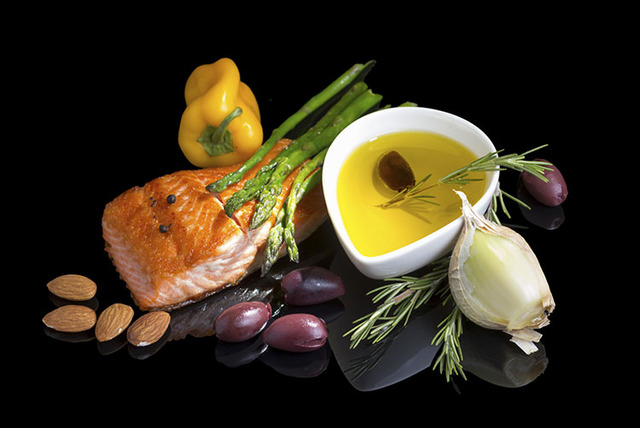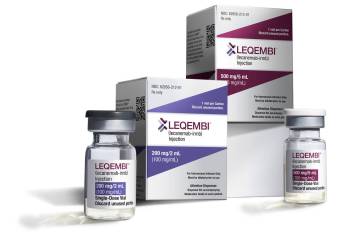Eat more, the Mediterranean way
Study after study after study has shown that the Mediterranean diet reduces the risk of heart disease, stroke, diabetes, depression, death from Parkinson’s disease, Alzheimer’s disease and cancer. Additional findings report that it may help aid against fractures as we age. The choices we make when it comes to how we nourish our bodies are important.
As the name suggests, the history and tradition of the Mediterranean way of eating comes from the historic eating patterns of the regions bordering the Mediterranean — around southern Italy, Greece, Turkey and Spain. In essence, it is a sensible, tasty, healthy eating plan that has received a lot of buzz over the years — and for good reason. There is a fast-growing mountain of scientific evidence about the benefits of consuming a Mediterranean diet. Along with its great health benefits with our heart and waistline, there are new studies reporting that our bones could benefit too.
Dr. Nina’s What You Need To Know: About the Healthy Mediterranean “Eating Plan”
Fruit and vegetables. They are “ripe” with antioxidants, vitamins, fiber and nutrients and should be included in every meal and incorporated into snacking. Additionally, they are low in calories. No single fruit or vegetable can provide all the healthy components our body needs to function optimally; it takes a village (or more aptly, multiple crops). I recommend eating “across the rainbow” — red, orange, yellow, green, blue, and purple (a combination of indigo and violet). In other words, incorporate all types of fruit and veggies to get the full spectrum of benefits. And, fortunately, our choices are only limited by our imagination.
Whole grains. They include wheat, oats, quinoa, barley, popcorn and rye. These “whole-some” foods contain little or no saturated or trans fats but do contain plenty of phytochemicals (disease preventive properties), antioxidants, fiber, iron, magnesium and vitamins B and E — all kinds of good stuff. In addition to tasting yummy, studies have shown that people who eat three daily servings of whole grains may be able to reduce their risk of heart disease by up to 28%, stroke by up to 36%, and type 2 diabetes by up to 30%.
Legumes. This funny word describes a class of veggies that includes lentils, beans and peas. In fact, The Mayo Clinic has stated that they “are among the most versatile and nutritious foods available.” Legumes are low in fat, devoid of cholesterol, a good source of protein, and a powerhouse when it comes to important vitamins and minerals (folate, potassium, iron, and magnesium). Their protein content makes it suitable to supplement or substitute for meat.
Nuts and seeds. They can improve our blood vessel function, as well as decrease the size of atherosclerotic plaques (fatty plaques within artery walls that impede blood flow to organs) and blood clot formation (can completely block off blood flow). Not only are they a good sources of fiber, protein, and healthy fats, but they are fun to snack on or use as a garnish for salads and meals. They also contain omega-3 fatty acids — essential fatty acids that play a crucial role in brain function, as well as heart health and mood. Before going nutty, remember that nuts are high in calories and should be consumed in moderation.
Swap unhealthy fats with healthy fats. The Mediterranean diet uses olive oil as the primary source of fat. Olive oil is primarily a monosaturated fat that has the power to decrease “bad cholesterol” levels. The term “extra-virgin” indicates that there is no processing and “virgin” means minimal processing. Processing can decrease the amount of antioxidants. So let’s put the butter and margarine in the back of the refrigerator and reach for the extra-virgin or virgin olive oil the next time we want to sauté, drizzle, flavor or dip food into.
Swap the salt shaker for herbs and spices. We all love the succulence of flavorful food and parsley, garlic, thyme, marjoram, turmeric, paprika, and rosemary are some of the many items we can use to have our food burst with tastiness. These items contain antioxidants, disease-fighting agents, vitamins, and detoxification chemicals that can have far-reaching benefits on our body’s health.
Swap the red meat for fish and poultry. Studies have shown that diets high in red meat consumption—in particular, processed meats—elevate the risk for cardiovascular disease, diabetes, colorectal cancer, and can even shorten your lifespan. Consider limiting consumption of red meat to a few times a month. And when we do, make sure it is lean, not processed, and in small amounts. Other excellent sources of protein include fish, poultry, nuts, low-fat dairy and whole grain products.
Swap high fat dairy products for low fat options. Low to moderate amounts of dairy foods, such as milk, yogurt and cheese are permitted on the Mediterranean diet. However, low-fat or fat-free versions should be used in lieu of full-fat versions. Researchers have shown that people who ate low-fat fermented dairy products (yogurts, fromage frais, low-fat cottage cheese) were 24 percent less likely to develop type 2 diabetes compared to those who did not. Greek yogurt contains probiotics which in theory contain “good bacteria” that can keep the “bad bacteria” in our body under control or suppressed.
A diet is a way of eating — and the Mediterranean-style of eating has proven to be perhaps the world’s healthiest diet. It is important also to watch portion sizes and slow down when eating. Savor your meals. You will not only enjoy your company and your food, eating slowly allows you to tune in to your body’s fullness signals. It is a very palatable, fairly simple way to find a beneficial eating plan you can enjoy — while gaining the immeasurable benefits of a longer and healthier life as a result of using its guiding principles.
This article is for general information only and should not be used for the diagnosis or treatment of medical conditions and cannot substitute for the advice from your medical professional. Dr. Nina has used all reasonable care in compiling the current information but it may not apply to you and your symptoms. Always consult your doctor or other health care professional for diagnosis and treatment of medical conditions or questions.




























